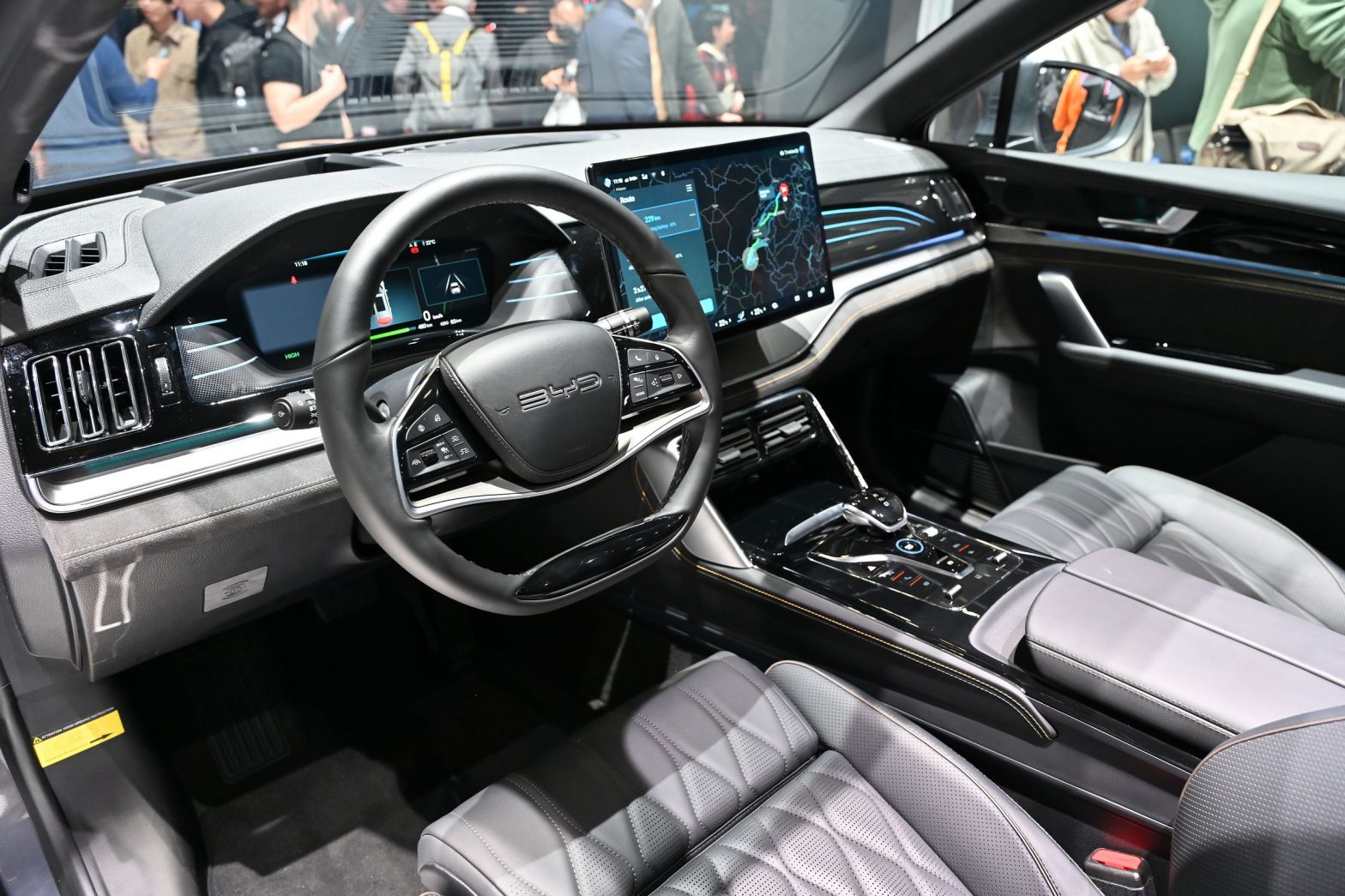/
The probe being launched by the US Commerce Department cites concerns that foreign-made vehicle technology could be used to collect sensitive data.
Share this story
:format(webp)/cdn.vox-cdn.com/uploads/chorus_asset/file/25311065/2043952282.jpg)
The US government is opening an investigation into the potential risks to national security posed by smart car technology produced in China and “other countries of concern.”
The US Commerce Department’s probe will focus on “connected vehicles” — a broad term that can be applied to any car with internet access — amid concerns that technology like cameras, sensors, and on-board computers could be exploited to collect sensitive data about US citizens and infrastructure.
During a call with reporters on Wednesday, Commerce Secretary Gina Raimondo said that the investigation was being launched “before Chinese-manufactured vehicles become widespread” across the US.
“Imagine if there were thousands of Chinese vehicles on American roads that could be immediately disabled by somebody in Beijing,” Raimondo said, later adding that “it doesn’t take a lot of imagination to figure out how a foreign adversary like China with access to this sort of information at scale could pose a serious risk for national security and the privacy of US citizens.”
A separate statement from President Joe Biden repeated an oft-heard cliche likening modern cars to “smart phones on wheels.” He accused China of using unfair business practices, such as the state subsidies for Chinese-made EVs being investigated by the EU, to secure a foothold over the auto industry.
“China imposes restrictions on American autos and other foreign autos operating in China,” Biden said. “Why should connected vehicles from China be allowed to operate in our country without safeguards?”
While no immediate restrictions are being put in place, administration officials told reporters on Wednesday that the investigation may lead to new regulations that could restrict or prohibit certain vehicle parts from being used in the US. Such action would mirror trade restrictions placed against companies like Huawei over national security concerns that the telecom giant could be exploited by the Chinese government for espionage. Some policymakers in the US have also attempted to restrict or outright ban TikTok, the shortform video app owned by Chinese company ByteDance, over similar fears.
China has previously accused the US of repeatedly abusing “the concept of national security” to wrongfully target Chinese companies and impede competition from global markets. Meanwhile, Tesla faces similar scrutiny in China over concerns the US could use the EV company to spy on the country, with restrictions reportedly limiting where they can be driven.
China surpassed the US as the largest auto market in the world several years ago. Thanks to high tariffs, though, there are no Chinese-made cars for sale in the US. Some Chinese automakers are exploring opening up plants in Mexico, raising fears among US auto executives that they could soon start importing low-priced models into the country.
